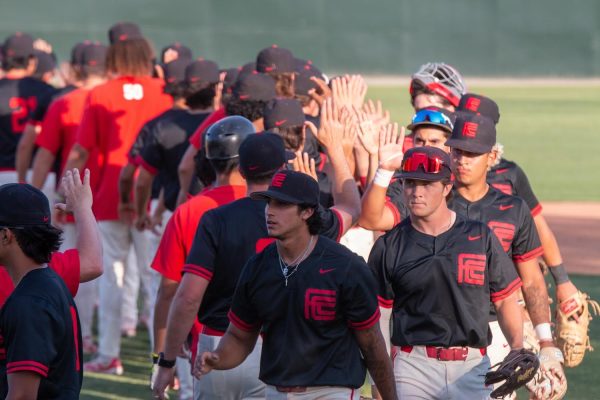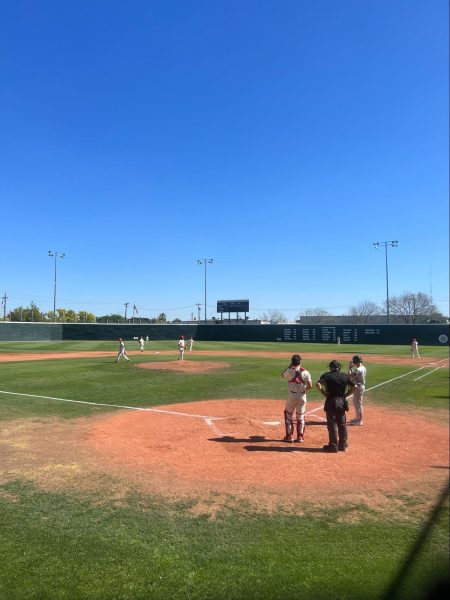The Pulse Of The Game: Betts Trade Reflects Modern MLB Ownership Objectives
Oh, to be a Los Angeles baseball fan in 2020.
Superstars Mike Trout, Anthony Rendon, Cody Bellinger, and Clayton Kershaw will now be joined by outfielder Mookie Betts.
Hey, look at that. Every one of those players has either won an MVP award or World Series in the last six years. Betts did both in 2018.
On Feb. 4, the Boston Red Sox announced a complicated trade that sent Betts and pitcher David Price to LA for Alex Verdugo and prospects, but their motives for trading away an already franchise-great player not even 18 months after he achieved those accolades perfectly reflect the ideals upheld by modern Major League Baseball team owners.
The Red Sox believed Betts was destined for free agency after this season, so they exchanged him for future flexibility not long after they won the 2018 World Series as the team with the highest payroll in baseball. Surprise, there’s a positive relationship between wins and spending!
Red Sox owner John Henry is the prime example. Henry is the owner of one of the most successful and profitable franchises in professional sports history, one that’s won four World Series in this century alone.
He has the money to pay for the best players and coaches, his team attracts the most ambitious and intelligent front office personnel and his organization uses modern developmental strategies to construct competitive rosters.
Henry is in the ideal situation to compete and contend. He’s instead chosen to trade away the perfect product of those resources, one that every team in the league wishes they could produce.
In the last couple years, ownership groups like Henry’s have prioritized a tighter payroll and opted not to compete in seasons that don’t have a clear window of winning for them.
In actuality, the league is now so stratified between the juggernauts and the tanking teams fighting for the first overall pick – which isn’t actually all that valuable – that any team floating around a .500 record can make a couple roster improvements and jump right into the playoff race.
That doesn’t mean teams should purposefully take a step back since they’ll make the playoffs anyways. Last winter, the Cleveland Indians shopped their star players, believing that they’d still run away with their division… they missed the 2019 playoffs entirely.
MLB owners have made it clear that they won’t prioritize competing and they won’t put the best interest of their respective fans at the forefront. So, if they’re willing to pass on the two clearest and most efficient avenues to increase profits, what’s their game?
Easy, it’s about saving money. Baseball has adapted into an inefficient business structure, where players are paid below their production level, minor leaguers are paid next to nothing wages and money fills the owners’ pockets in a time when MLB’s revenues are soaring higher and higher by the year.
“No one buys a movie ticket only to fret about what the producers paid to hire the performers on screen,” said Marc Carig of the Athletic. “In baseball, that hand-wringing has become its own little pastime. And those who write the checks have taken cover in such foolishness.”
Baseball isn’t a “chess game” anymore. It’s Monopoly.

Patrick Henslee is in his third semester at the Rampage, and steps into the role of Managing Editor for the Spring 2020 semester. The 20-year-old is an...






